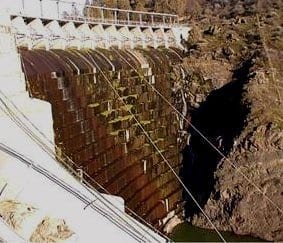Help recover the Klamath River’s fabled steelhead and salmon runs
In thirty seconds, tell your elected officials you want the Klamath River restored
The fight to remove the four aging dams that have throttled the Klamath River’s once-great salmon and steelhead runs is heating up.
We need your help to succeed.
By telling your senators you support legislation enabling the Klamath Basin Restoration Agreement (KBRA), you’ll increase the Klamath River’s endangered salmon runs by as much as 80% (steelhead will benefit too).
Removing the four lower Klamath River dams will open up nearly 400 miles of salmon and steelhead spawning habitat — and remove the source of toxic algae blooms that turn the Klamath pea-soup green every summer.
It’s time for these aging dams to come out — and for a healthy Klamath River to once again become one of the largest salmon producers on the west coast.
Click here, and thirty seconds from now, you’ll be done.
What is The KBRA?
The KBRA is an agreement among 26 diverse groups who grew tired of the lawsuits and lack of progress in the Klamath basin.

Give steelhead and salmon access to 400 more miles of spawning habitat...
Under the KBRA, the lower four Klamath Dams would come down, and salmon habitat restoration projects would revitalize 400 miles of prime habitat opened to salmon.
Irrigators — suffering for years from unpredictable water supplies — would be able to count on regular water deliveries.
And the Klamath’s economically depressed surroundings would benefit from 4600 jobs — including new agriculture and recreation jobs.
Click here to tell your senator to support legislation that supports the KBRA.





3 Comments
I haved lived on the middle klamath 90 % of my life. My tribe the karuk tribe has seen the fish
Population dramatically decrease in the last century. We owe it to the fish and the people who
Need them to take the dams out. Thanks
Salmon are part of out identity on the west coast. Dams have been impeding salmoniod runs for decades and decades. It is outdated technology and needs to go. Please help give these fish a chance to come back again in numbers that support healthy and wild populations again. We Owe it to ourselves, our kids, and to the fish that want to come back again
Thanks! We got a lot of responses — and a lot of letters sent — to the senators we listed in this little campaign.